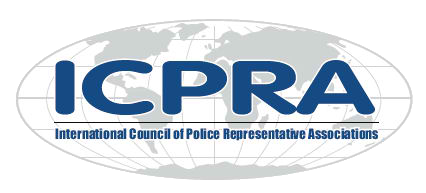No Easy Thing to Address the Burden of the Past
Mark Lindsay, Chair, Police Federation for Northern IrelandThere’s an entire generation in Northern Ireland for whom the ‘Troubles’ were something that happened before they were born. They never woke up to the latest news of appalling terrorist actions or the misery they left in their wake.
It’s now twenty years since the Belfast Agreement which was to transform Northern Ireland; end the violence and make the gunman and bomber redundant. It hasn’t quite worked out like that as there are still active and determined cells of republican terrorists who are wedded to violence to achieve their aims of a united Ireland.
These terrorist cells are small but not insignificant. Since the formation of the Police Service for Northern Ireland (PSNI), the successor to the Royal Ulster Constabulary George Cross, two of our members have been murdered with others left injured in gun attacks. Many more have been forced from their homes by the thugs who detest the fact that people from both communities have made a career for themselves in the PSNI.
The past is never far from our doorstep. It rears its head whenever politicians attempt to address the vexed issues that were kicked down the road at the time of the Belfast or Good Friday Agreement and the subsequent Referendum that secured overwhelming support from both Unionists and Nationalists.
In Northern Ireland, we have just completed a Government Consultation on legacy, and how we should complete the unfinished business of dealing with the past. Ministers have provided several proposals contained in a draft Bill, which this Federation has rejected in its entirety. In short, we have urged the government to re-think its strategy.
The danger comes in the shape of equating the crimes of the terrorist with the brave and selfless actions of the Police. More than three hundred Officers were murdered during the campaign of violence, with 200 murders remaining unsolved. Immediate and extended families are left as victims without closure, and that’s a burden they have to live with each and every day.
To give some context and perspective, terrorists killed 3,251 people. Police officers were responsible for 1%, or 51 deaths, almost all of them lawful killings. That hasn’t prevented opponents orchestrating a vicious campaign against those who served in the RUC GC and worked tirelessly to thwart the bomber and gunman.
It’s important to state that this Federation is opposed to amnesties or lines in the sand which would be a denial of justice. No one is above the law, and that includes officers, and if there’s evidence of wrong-doing, then let the evidence dictate the course to adopt.
We have been forthright and vociferous in our denunciation of this draft Bill and consultation exercise. We view it as an assault on the names, reputations and standing of the men and women who stood against republican and loyalist terrorism and created the environment for peace.
The proposals are seriously flawed and serve only to re-write the past, turn facts on their head and apply a veneer or gloss over some of the most atrocious crimes perpetrated by terrorists fuelled by hatred.
A central plank in the proposed Bill is the creation of a Historical Investigations Unit (HIU). In effect, this would be a parallel police service. We contend that the PSNI ought to do all the investigating and not some new, untried and untested agency. The PSNI is not currently funded or structured to deal with vast legacy investigations, but we believe the skillset to investigate murder is best held by police officers.
As well as a new HIU, there’s mention of a new and highly dangerous catch-all called ‘non-criminal police misconduct’. This means serving, retired or deceased officers can be held retrospectively liable for matters which are not even deemed to be a crime.
‘Non-criminal police misconduct’ will become the new ‘collusion’ which currently sits outside the law. All of this in the context that mass murderers were released from prison or given amnesty. No right-minded person could fail to see the hypocrisy in that.
We cannot place former or serving Officers at a financial disadvantage, which is why the Federation argues for an adequate legal fund to create the level playing field where an officer can obtain professional legal representation to counter spurious and malicious claims.
Alive or dead, serving or former, these proposals will result in officers being trailed through the most monstrous ‘circus’ where their good names and reputations will be shredded.
The sad truth is that these proposals will fail to deliver justice and closure to families, who will be given false expectation that by laying the blame at the feet of police officers, they will get closure or convictions. It will simply fuel a legal industry feeding off the never-ending Legal Aid gravy-train, with former officers being vilified for doing their best in unprecedented circumstances.
The bias favours the terrorist with officers cast adrift and left vulnerable and isolated. It is a denial basic human rights and equality and should be ditched.
Similarly, proposals for an independent Commission on Informational Retrieval and an Oral History Archive won’t work. If officers are prevented for legal and security reasons from telling their stories, how then can you get truth, balance and objectivity? They are sure to favour a narrative which is deeply hostile to police and which has been embellished by years of story-telling and myth driven by political agenda.
It is no easy thing to address the burden of the past in Northern Ireland. This draft Bill fails to advance the case one iota and is best consigned to the Government’s dusty archives.
